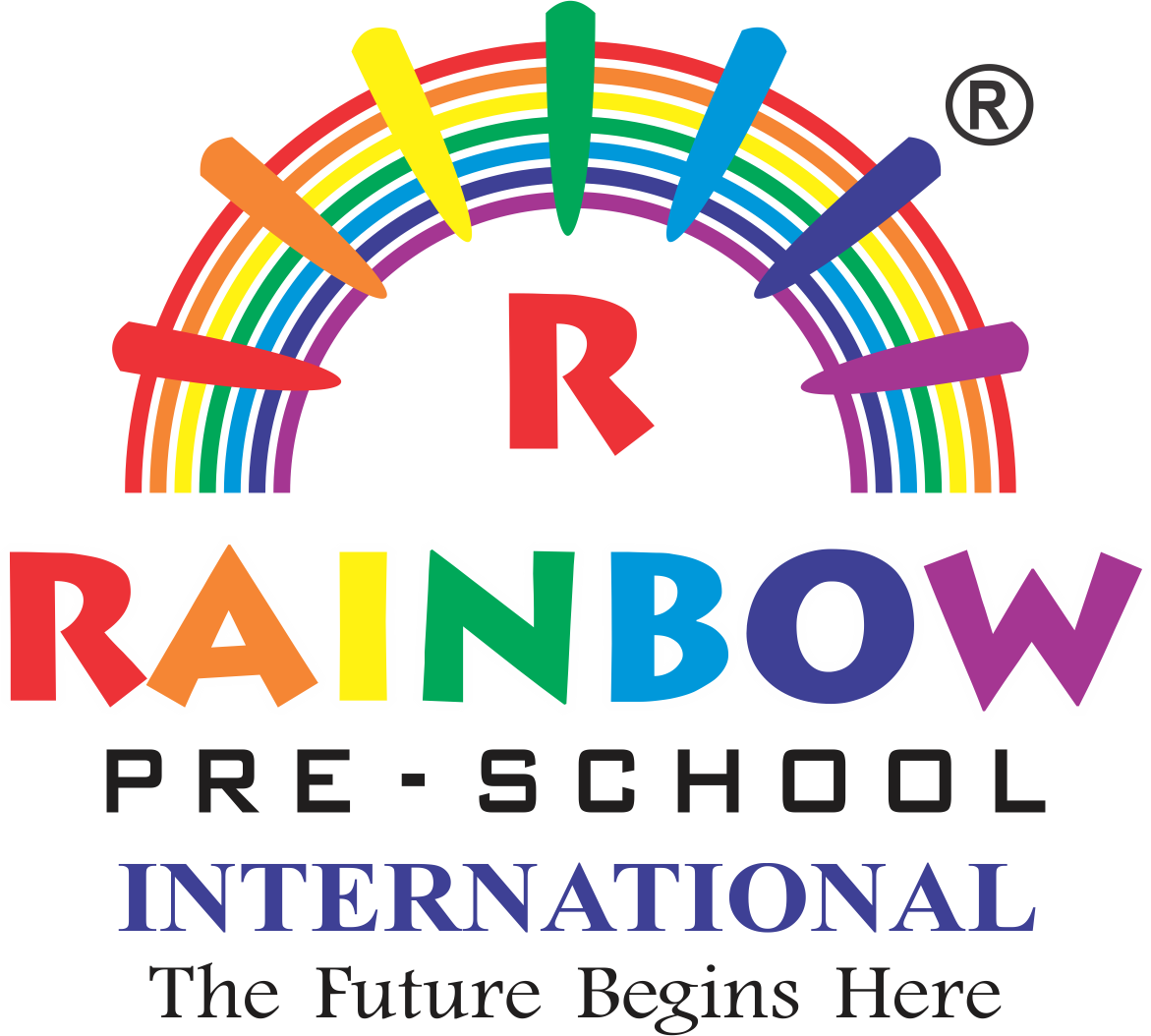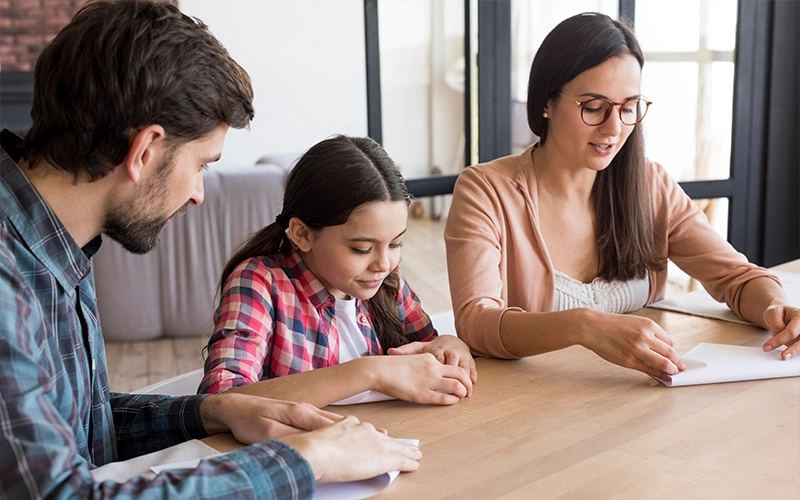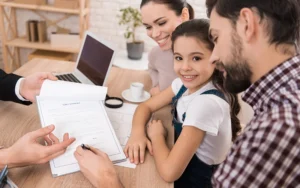In education, the synergy between parents and teachers plays a pivotal role in shaping the holistic development of students. Parent-teacher communication is not just a routine protocol but a fundamental bridge that connects the efforts of educators with the supportive environment of home. This blog explores the profound impact effective communication between parents and teachers can have on a student’s academic and social success. We will delve into different methods and tools that facilitate meaningful interactions and highlight real-world examples where these practices have fostered significant improvements in educational outcomes.
What Is Parent-Teacher Communication?
Parent-teacher communication involves the ongoing exchange of information, concerns, and progress between parents and teachers regarding a student’s school development. This communication can take various forms, from face-to-face meetings and telephone calls to digital communications like emails and educational apps. This interaction ensures that both parents and educators are aligned on the goals and working collaboratively to support the student’s learning journey.
Benefits of Parent-Teacher Communication
1. Benefits for Students
Effective parent-teacher communication benefits students by creating a consistent support network that bridges school and home life. Students with this supportive network tend to exhibit higher levels of self-esteem, better academic performance, and more positive attitudes toward school. They are also less likely to exhibit behavioral issues as both major spheres in their lives—home and school—are interconnected and mutually reinforcing.
2. Benefits for Parents
For parents, regular and meaningful communication with teachers helps demystify the educational process. It allows parents to understand the academic challenges and social dynamics their child faces, equipping them with the right tools to provide appropriate support at home. Additionally, it empowers parents to advocate effectively for their child’s needs and to participate more fully in their education.
3. Benefits for Teachers
Teachers benefit significantly from open lines of communication with parents. Such interactions give teachers valuable insights into students’ backgrounds, learning styles, and challenges. With this knowledge, teachers can tailor their instructional strategies to meet each student’s needs better, enhancing the educational experience and effectiveness.
How Parent-Teacher Relationships Impact Students
The quality of parent-teacher relationships can significantly influence a student’s emotional and academic outcomes. Studies have shown that students perform better in all aspects of their schooling when their parents actively engage in their educational journey. This engagement, facilitated by effective communication, helps ensure that students receive consistent messages about the value of education and the behaviors that lead to success.
Communication Strategies For Teachers
Ways teachers can communicate with parents include:
- Regular Updates: Sending out regular updates via newsletters, emails, or educational platforms can keep parents informed of class activities and their child’s progress.
- Personalized Communication: Tailoring communication to address specific student needs can help build a stronger connection with parents.
- Parent Meetings: Scheduled conferences and informal meetings provide a forum for in-depth discussion about a student’s progress and strategies for improvement.
Communication Strategies For Parents
How can parents effectively communicate with teachers?
- Initiate Contact:Parents should feel empowered to initiate contact with teachers to discuss their child’s progress or any concerns they may have.
- Participate in School Activities:Being involved in school activities and parent-teacher meetings demonstrates commitment to the child’s education.
- Provide Feedback:Constructive feedback about the child’s home life can offer teachers insights that might influence their teaching strategies.
Enhancing Communication Techniques
Schools can utilize technology by adopting platforms that facilitate direct and constant communication to improve communication between parents and teachers. Training sessions for teachers on communication skills and cultural competence can also bridge gaps due to diverse backgrounds.
Encouraging Regular Attendance
One specific area where parent-teacher communication can have a transformative impact is motivating students to attend school regularly. Discussions about attendance strategies can be linked to broader conversations on how to motivate your child to go to school, integrating efforts from both home and school to tackle challenges like school avoidance or disinterest. Engaging parents in setting routines, understanding the importance of regular attendance, and discussing what happens in the classroom can make a substantial difference in a child’s eagerness to attend school.
Conclusion
In conclusion, effective parent-teacher communication is a cornerstone of successful education systems. It enhances the educational experience for students, provides parents with confidence and clarity, and equips teachers with the insights necessary to educate more effectively. As we embrace more innovative communication strategies, the potential to improve educational outcomes through strengthened parent-teacher partnerships is immense. By fostering an environment where communication thrives, we pave the way for our students to succeed both in and out of the classroom.
FAQs
A:Parents and teachers play complementary roles in a student's life. Parents provide emotional support, guidance, and stability at home, nurturing personal growth and development. Teachers contribute to academic skills and knowledge, fostering intellectual growth and social skills. They create a supportive network that enhances the student's overall development and success.
A:The role of a parent in education is to support their child's learning by providing a stable environment, encouraging educational pursuits, and fostering a positive attitude towards school. Parents advocate for their children, ensuring they receive the necessary resources and support to succeed academically and personally.
A:The role of a parent encompasses providing emotional, social, and physical support to their children. This includes nurturing, protecting, and guiding children as they grow, helping them develop into independent and responsible adults.
A: Parent-teacher communication refers to the ongoing exchange of information between parents and teachers regarding a student’s academic progress, behavioral development, and social well-being. This communication is crucial for aligning efforts between home and school to support the student's education.
A:Parents can communicate with teachers by initiating regular check-ins via email or phone, attending parent-teacher conferences, and participating in school events. They should provide feedback and insights about their child's home environment and any concerns, fostering a collaborative approach to addressing the child's needs.
A:Parent-teacher interaction is the direct communication and collaboration between parents and teachers. It includes formal meetings, informal chats, and digital communications aimed at discussing and improving students' educational and personal development.
A:Teachers can improve communication with parents by providing clear and consistent updates, showing empathy and understanding of diverse family backgrounds, and being responsive to parental concerns. Various communication methods and ensuring accessibility for all parents can also enhance communication.
A:The parent-teacher role in child development involves collaboration to support the child’s educational and personal growth. While teachers provide academic guidance and structure, parents reinforce learning and values at home, ensuring a cohesive approach to nurturing the child’s potential.
A:Interaction with parents is important because it ensures educators and parents work together towards common goals for a child’s education. This synergy helps address any educational or behavioral issues more effectively and supports the child's overall well-being and success.








